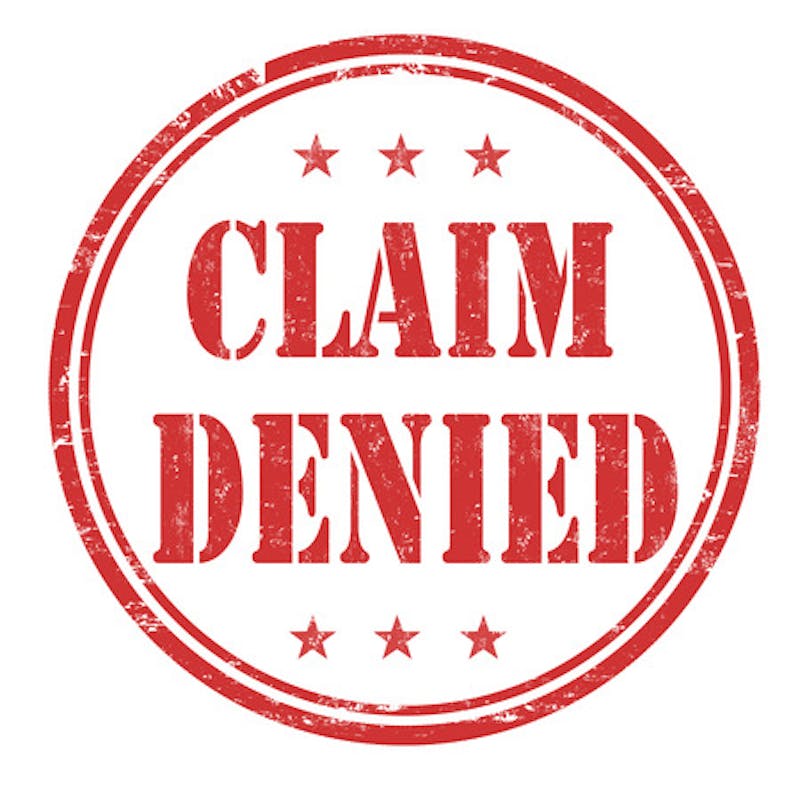
Although most people do not realize this until they have the misfortune to be involved in a personal injury case, insurance companies ultimately pay the vast majority of personal injury claims. In an automobile collision, the liability insurer for the negligent driver that injured someone else will typically pay out any verdict or settlement, while the same is true of a business’s general liability insurer in slip and fall cases and a healthcare provider’s medical malpractice insurer in medical malpractice cases. It is very important that insurance companies behave fairly towards their insured’s in each of those cases and not simply refuse to pay a claim to be obstinate or because they do not feel like paying the money for business reasons.
An Example of a Typical Bad Faith Claim
As an example of a potential bad faith scenario, consider the following: Suppose a pedestrian, a highly skilled and highly paid business executive in his mid-40’s with several children and a spouse, is hit and killed by a drunk driver, out on parole from his third DUI conviction and runs a red light. The driver has automobile liability insurance in the amount of $250,000 in coverage for scenarios where others are injured or killed. This seems to be a fairly open and shut case as it relates to liability because the driver was drunk, had a history of driving drunk, there is an accident report completed by a police offer ascribing 100 percent fault to the drunk driver and concluding that the victim acted 100 percent appropriately. Despite the potential exposure to its insured, the drunk driver, the insurer refuses to accept a demand for the entire $250,000 from the victim’s surviving family in exchange for a release, which bars any further lawsuit against the driver. The insurer says no and the drunk driver then loses at trial and a judgment for $2,500,000 is entered against him and his insurer. The drunk driver would be personally liable for the $2,250,000 of the jury’s verdict, which would not be covered by his insurance company. In this case, he likely would have a bad faith claim against his insurer because it unreasonably refused a demand for the drunk driver’s policy limits by the victim’s estate, thereby exposing the drunk driver to the risk of a judgment being entered against him that he could not satisfy.
Why Insurance Companies Need to Play Fair
Just like the example above, many times insurance companies will refuse to settle a claim even when the liability of the insured is clear. This can apply in many different contexts, including in personal injury cases involving automobile accidents, slip and fall incidents as well as medical malpractice cases. There is an implied covenant faith of fair dealing under Florida law that is implied in every insurance policy that someone purchases. This means that an insurer, in exchange for agreeing to provide insurance coverage for a premium payment by an insured party in Florida, agrees to deal with any claims made against that insured under that policy in a fair manner. The insurer is required to conduct a thorough investigation of the claim and, if liability is clear, the insurer may have an obligation to settle the claim on behalf of its insured. Unfortunately, because insurance companies do not always live up to their duty to approach every claim in a good faith manner under Florida law, an area of law called bad faith has developed. Sometimes liability regarding particular claims for damages are so clear cut that, if an insurer refuses to settle the case, then the insurer is said to be acting in bad faith because it is unreasonably exposing the insured to the possibility that a jury might award damages against the insured in excess of their policy limits simply because the insurer is being obstinate in refusing to settle a claim.
Our Law Firm Has Extensive Experience Dealing with Intransigent Insurance Companies and Will Fight to Ensure that You Receive the Compensation You are Entitled to
The bad faith statutes in Florida are very complex and require the assistance of an attorney who is well versed on when and how to bring a bad faith claim in connection with a personal injury claim. During the lawyers of our firm’s more than 150 years of combined legal experience, we have litigated and won or settled numerous bad faith claims against insurance companies on behalf of our clients who have been injured as a result of motor vehicle accidents, trucking accidents, medical malpractice and premises liability claims in cases where liability was undeniable. Call our firm today for a free evaluation of your case if you have been injured, whether in a motor vehicle collision, a trucking accident, a slip and fall or under any other circumstances.
Copyright: roxanabalint / 123RF Stock Photo
